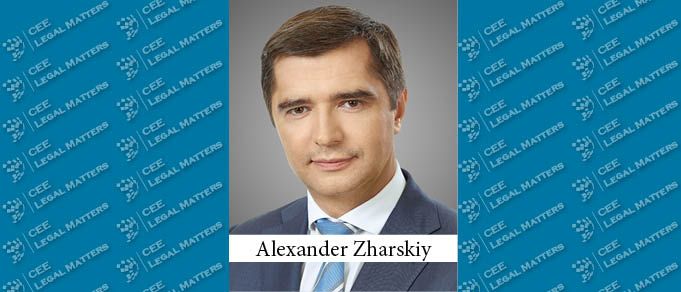On March 24, 2021, CEE Legal Matters reported that Alrud had advised Sino-Russian joint venture AliExpress Russia on its investment in KazanExpress. We reached out to Alrud Partner and Head of Corporate/M&A Alexander Zharskiy for more information about the deal.
CEELM: Let’s start at the very beginning. How did the firm first get involved in this deal? At what stage were you brought in and what was your mandate?
Zharskiy: AliExpress is one of our long-standing clients. We had previously advised them on a range of other issues, including regulatory, compliance, and financial matters, but this was the first corporate deal we have worked on together. Our team was involved from the very beginning, as the exclusive legal counsel to AliExpress for this deal. As such we oversaw and prepared all the transaction documentation enabling the client’s expansion of its presence on the Russian market.
CEELM: Please give our readers a bit of context. What do you believe was the rationale behind the deal? Why did it make sense for your client to buy the 30% stake?
Zharskiy: In my view as external legal counsel, KazanExpress as a target company was a prospective and dynamic start-up, attractive for investment from market players. KazanExpress has a strong presence in Tatarstan and the surrounding regions in Russia. The deal would allow for KazanExpress suppliers to be brought onto the AliExpress platform. I believe the investment would contribute to our client’s strategy of achieving a leading position among electronic platforms.
CEELM: AliExpress Russia, your client, is a joint venture between China’s Alibaba Group and Russia’s MegaFon, Mail.ru Group, and the Russian Direct Investment Fund. Do you find advising a JV is different from advising a straightforward company? Without going into details, were there differences of opinion between the JV partners and, if so, how were they overcome?
Zharskiy: We only worked with the management of the JV company so there were no differences of opinion to be overcome. I’m not sure of the extent to which the JV partners were involved in the deal.
CEELM: According to KazanExpress’ counsel, “the investment will help the company expand its logistics platform, supporting its active expansion from 33 to 127 cities in the European part of Russia.” In light of that expansion drive, what were your particular focuses on, as advisors on the deal? Were you merely focused on maximizing capital, or were there other terms your client found critical to settle on, that facilitated this mission?
Zharskiy: The deal was not as simple as you would imagine. As the target company has a development strategy which requires a lot of investment, special attention was paid to the structuring of shareholder relations and to reflecting different potential outcomes in the transaction documentation.
CEELM: What aspects did you find to be most challenging in this deal?
Zharskiy: Due to the very dynamic nature of the market, we were always in a rush to catch up to and include the most recent developments. The business side frequently ran ahead of negotiations, documentation, and final agreements.
Overall, the deal should have been completed within a short time frame, and the advisors’ goal was to not be late with the documentation. It was not possible to put either business on pause, so we had to run to keep up to speed.
CEELM: On the flip side, what went rather smoothly relative to expectations?
Zharskiy: Working together with the many parties involved was surprisingly smooth. I believe this was very important. We do have experience with multiple types of clients on M&A, but I appreciate and would highly endorse the AliExpress in-house team. The client-side decision-making process on key issues – important because of the tight timeline and changes in the target company – was fantastic. They were able to run, process, and negotiate issues, all the while making reasonable business judgments on the transaction. And it was the same on the sell side, a reasonable approach by all categories of shareholders – founders, management, investors – despite a mixture of differing interests.
CEELM: If you had to point to one, what would you say was the single most important factor contributing to the success of the deal?
Zharskiy: Timing was the main factor for success – it couldn’t be wasted, and it was important for the parties to close the deal quickly with the help of their advisors. It was crucial since, if the target company would not obtain financing at the appropriate times, its business could be disrupted. Thus, it was important for both sides to set up clear rules and answer some difficult questions.
CEELM: In your view, what is the significance of this deal for the Russian market?
Zharskiy: The deal supports the development of the e-commerce sector in Russia.
This Article was originally published in Issue 8.8 of the CEE Legal Matters Magazine. If you would like to receive a hard copy of the magazine, you can subscribe here.
















